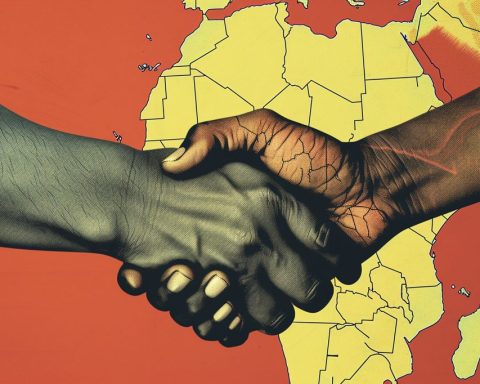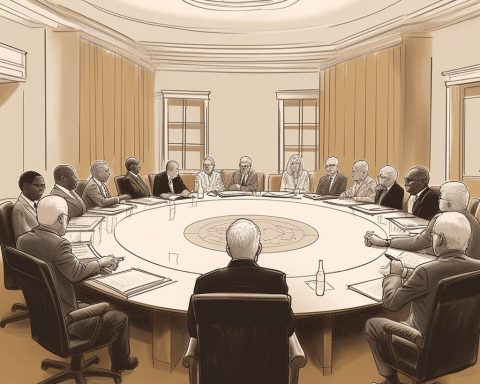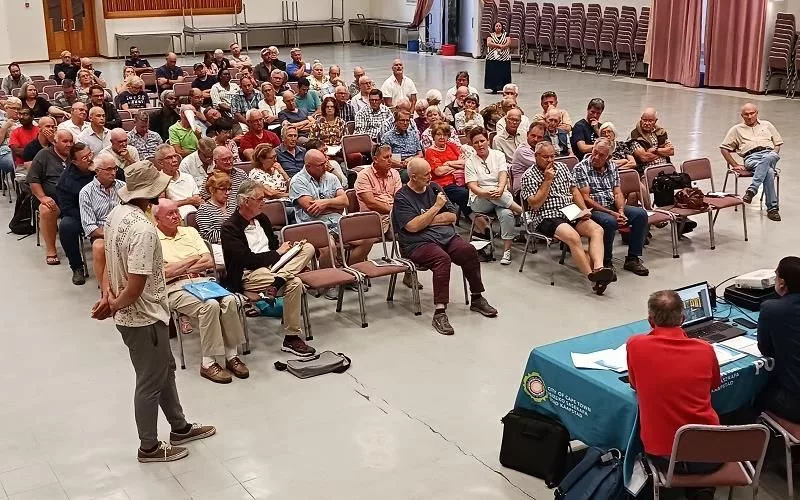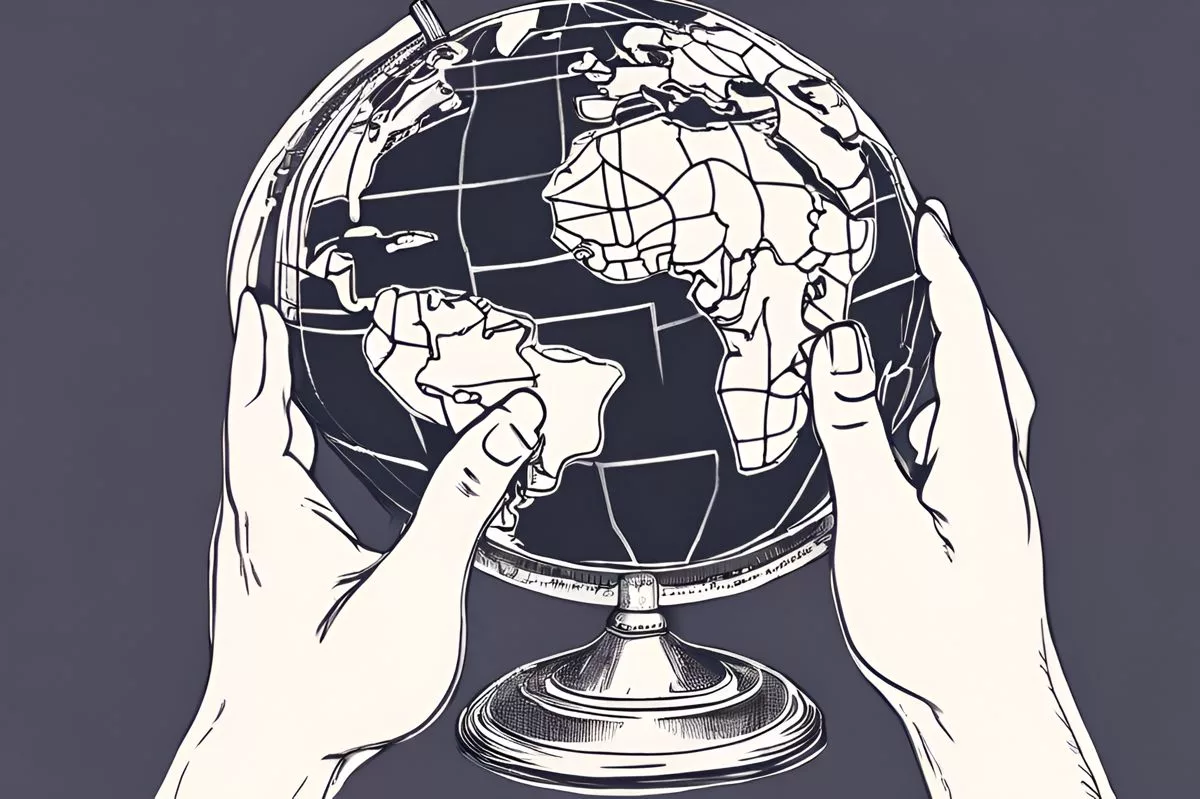The mutual visa exemption for ordinary passport holders and dispatch under the AfCFTA Agreement marks significant strides towards achieving the aim of enhancing economic integration in Africa through the South Africa-Ghana Bi-National Commission, which seeks to strengthen cooperation in various areas, including trade, investment, technical, scientific, social, and cultural cooperation. As the Commission continues its discussions, the aspiration for a brighter future for the inhabitants of Ghana and South Africa is tangible, serving as a beacon for the continent’s journey towards unity and prosperity.
What is the South Africa-Ghana Bi-National Commission?
The South Africa-Ghana Bi-National Commission is a platform for collaboration between the two nations, aiming to enhance economic integration in Africa. The commission seeks to strengthen cooperation in various areas, including trade, investment, technical, scientific, social, and cultural cooperation. The mutual visa exemption for ordinary passport holders and dispatch under the AfCFTA Agreement marks significant strides towards achieving this aim.
The Beginning of a Historical Event
As the first light of day illuminated the historical city of Pretoria, a sense of anticipation, potential, and unity colored the air. This was far from a regular gathering. The gathering, in fact, was the second chapter of the South Africa-Ghana Bi-National Commission (BNC), signifying the enduring solidarity between these two nations, each possessing its own distinctive cultural, historical, and political narratives.
The path to liberation for South Africa was profoundly inspired by Ghana’s first President, Kwame Nkrumah, a shining light of pan-African unity. His influence is felt keenly even today, as the echo of Nelson Mandela’s recognition of Ghana’s significant role in South Africa’s emancipation still resonates within the Department of International Relations and Cooperation. This meeting was not just an event; it was a significant milestone.
The Vision and Challenges
The South Africa-Ghana Bi-National Commission’s mission is not merely limited to bilateral affairs. Its purpose transcends geographical boundaries; it seeks to realize the dream of African economic integration in line with the African Union’s Agenda 2063. Ghana, which also houses the Secretariat of the African Continental Free Trade Area, is at the forefront of this continental journey towards economic progress.
The global landscape is marked with volatility and conflict, from internal battles to the worldwide pandemic. The ripple effects of these worldwide phenomena, including crises in nations like Sudan, Somalia, Libya, Sahel, the Democratic Republic of the Congo, and northern Mozambique, reverberate throughout the African continent. The role of the African Union and the regional economic communities in promoting peace and stability has become more vital than ever.
The year 2024 holds immense promise for African democracy, as 19 countries, including South Africa and Ghana, are set to hold national or presidential elections. This democratic wave is essential in enhancing governance and strengthening democratic values across the continent. Yet, the escalating trend of unconstitutional governmental changes, especially military coups, is disconcerting.
External Threats and Internal Cooperation
Global events such as the war between Russia and Ukraine pose a grave threat to Africa’s food and energy security. Drawing from their historical experiences with colonial occupation, African nations voice their deep concern over unresolved issues in Palestine and the Western Sahara. Standing in solidarity with those still under occupation and dispossession continues to be a priority.
Between South Africa and Ghana, 24 agreements and memoranda of understanding covering economic, technical, scientific, social, and cultural cooperation lay the groundwork for extensive collaboration. The mutual visa exemption for ordinary passport holders, effective as of November 1, 2023, has considerably strengthened tourism, business connections, and academic exchanges between the two countries.
Economic Opportunities and Future Prospects
Trade and investment are crucial areas calling for focused action. South African businesses are eager to extend their investments in Ghana, a venture that the Business Forum, operating concurrently with the BNC, seeks to facilitate. Multiple opportunities for partnership exist, ranging from infrastructure development to the pre-chemicals industry. Maritime shipping, considering the coastal position of both nations, is an interesting prospect for economic cooperation.
Yet, the decrease in trade between the two nations over the previous four years highlights a need for strategic intervention. The African Continental Free Trade Area has the potential to completely transform trading dynamics across the continent. The recent dispatch from South Africa to Ghana and other nations under the AfCFTA Agreement marks a crucial stride towards this aim.
As the South Africa-Ghana Bi-National Commission continues its discussions, the aspiration for a brighter future for the inhabitants of Ghana and South Africa is tangible. The echoes of their shared history and the potential of their joint future weave a complex tapestry, symbolizing their ongoing alliance and serving as a beacon for the continent’s journey towards unity and prosperity.
What is the aim of the South Africa-Ghana Bi-National Commission?
The aim of the South Africa-Ghana Bi-National Commission is to enhance economic integration in Africa through strengthening cooperation in various areas, including trade, investment, technical, scientific, social, and cultural cooperation.
What is the significance of the mutual visa exemption for ordinary passport holders and dispatch under the AfCFTA Agreement?
The mutual visa exemption for ordinary passport holders and dispatch under the AfCFTA Agreement marks significant strides towards achieving the aim of enhancing economic integration in Africa through the South Africa-Ghana Bi-National Commission. This has considerably strengthened tourism, business connections, and academic exchanges between the two countries.
What is the mission of the South Africa-Ghana Bi-National Commission?
The mission of the South Africa-Ghana Bi-National Commission is to realize the dream of African economic integration in line with the African Union’s Agenda 2063 and to promote peace and stability in the African continent.
What are the external threats faced by the South Africa-Ghana Bi-National Commission?
The South Africa-Ghana Bi-National Commission faces external threats such as the war between Russia and Ukraine, which poses a grave threat to Africa’s food and energy security, and unresolved issues in Palestine and the Western Sahara, which African nations voice their deep concern over.
What are the economic opportunities for the South Africa-Ghana Bi-National Commission?
Trade and investment are crucial areas calling for focused action. South African businesses are eager to extend their investments in Ghana, a venture that the Business Forum, operating concurrently with the BNC, seeks to facilitate. Multiple opportunities for partnership exist, ranging from infrastructure development to the pre-chemicals industry. Maritime shipping, considering the coastal position of both nations, is an interesting prospect for economic cooperation.
What is the importance of the South Africa-Ghana Bi-National Commission for the future of the continent?
As the South Africa-Ghana Bi-National Commission continues its discussions, the aspiration for a brighter future for the inhabitants of Ghana and South Africa is tangible, serving as a beacon for the continent’s journey towards unity and prosperity. The ongoing alliance between the two nations symbolizes their shared history and the potential of their joint future, and lays the groundwork for extensive collaboration in various areas to achieve African economic integration.











